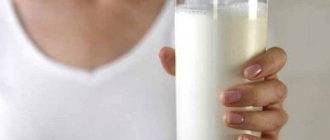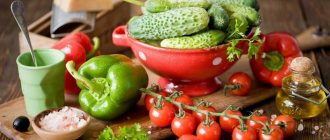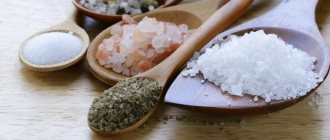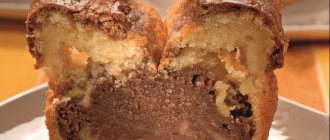Breastfeeding is one of the most important topics for parents of a baby. Breastfeeding is promoted in all sources of media. Some mothers are frightened by such assertiveness, while others, on the contrary, try to thoroughly study this issue. Of course, breast milk is a storehouse of nutrients. There is no mixture that can surpass milk in composition. The properties of breast milk are so unique and amazing that you should not deprive a newborn of the opportunity to receive a natural stimulator of growth and development. Of course, if there are no specific contraindications. In all other cases, it is advisable to continue breastfeeding. We hope that the article will be useful to both current and future mothers. We will try to understand all aspects of the mother’s diet during lactation. So, what can a nursing mother eat?
General nutrition rules for nursing mothers
The question - what can a nursing mother of a newborn eat - does not have a clear answer. It often happens that pediatricians recommend one thing, grandmothers recommend another, and lactation consultants recommend another. The hormonal background of the baby's mother is unstable, and the flow of various information is sometimes disturbing. A new role helps to gain new skills - the first swaddling, the first diaper change, the first bath. The first cry at night, and the young mother reproaches herself for eating a sandwich with “forbidden” sausage in the evening.
To prevent this from happening, you need to know the basic principles of nutrition during lactation. The medical literature says a lot that you need to eat little, but often. Take complex carbohydrates, watch the number of calories. But women in the new and unusual status of MOTHER do not always even manage to remember whether she brushed her teeth in the morning. And counting the calories eaten and the number of glasses of water drunk is almost impossible. Therefore, our goal is to tell you as simply as possible how to take care of yourself and your baby while remaining in a comfortable diet.
Almost all lactation consultants agree that the products consumed do not have a direct effect on the composition and properties of milk. But this fact is not a call to action - eat everything that is on the shelves of the refrigerator. During pregnancy, a woman monitors her diet very carefully and refuses all harmful foods. And during lactation, proper, complete and balanced nutrition is necessary. Any person who cares about their health has a diet similar to that of nursing mothers.
Studies have revealed that the baby’s body reacts mainly not to the foods that the mother consumed, but to how the food affected her body. For example, some foods can cause heartburn or flatulence. Such unpleasant manifestations affect changes in the blood, which subsequently leads to changes in the composition of milk. The main task is to trace which food causes a negative reaction in the baby. Therefore, you should not remove all “complex” foods from your diet.
Can I have seeds and nuts?
It is known for certain that both nuts and seeds are powerful allergens. Therefore, to protect yourself and your child, you should not eat more than 3 nuts per day. You can often hear recommendations regarding increasing a woman's consumption of walnuts in order to improve lactation. Indeed, they can stimulate milk production, as well as become a source of vitamins and vegetable fats. However, it is necessary to observe moderation in everything, this is especially true if the child is still very small.
Seeds often cause allergies in those children whose mothers respond to pollen from various herbs. If no such reactions were noticed, then you can chew the seeds a little.
So, the lactation period is far from a reason to deny yourself absolutely everything. Naturally, it is necessary to limit such harmful products as coffee, alcohol, sausages, etc. But they are harmful not only during feeding, but also in everyday life. As for other food products, they can and should be introduced, but this should be done carefully and no more than one new component per day.
Author of the article:
Sokolova Praskovya Fedorovna |
Pediatrician Education: Diploma in general medicine received from Volgograd State Medical University. Immediately received a specialist certificate in 2014. Our authors
Diet for the first month
What can nursing mothers eat in the first month after giving birth? The first month of life is very important in the formation of the baby’s immunity. Therefore, mothers worry about any sign of anxiety in the child. A reaction to milk most often manifests itself in the form of colic, rash, and problems with stool. Such manifestations are undesirable for the child and harm the emotional stability of the mother. To ensure that the mother’s food does not harm the newly born baby, it is advisable to eat steamed foods in the first month. Minimize your consumption of baked goods and sweets. Eat less bread, as yeast products can negatively affect the composition of milk. It is better to cook porridge in water and it is advisable to exclude rice. Although rice is on the list of allowed foods, its properties can contribute to constipation in the baby.
It is believed that a nursing mother needs a lot of fluid. However, you should not consume a lot of water in the first month. Lactation has not yet returned to normal. The amount of milk produced may not fully meet the baby's needs. In this regard, excessive consumption of water can lead to mastitis or lactostasis.
Otherwise, the diet of a nursing mother in the first month does not differ much from the diet of the entire period of breastfeeding.
Prohibited foods during breastfeeding
In general, more and more doctors are inclined to believe that without certain indications and, importantly, subsequent positive results from the child’s body, it is not worth prescribing elimination diets for the mother.
However, consuming some foods during lactation still leads to adverse consequences for the baby. The first and most obvious among them is alcohol.
.
The statement published on the website of the American Association of Pediatrics is impressive: women's consumption of alcoholic beverages during breastfeeding leads to a decrease in the baby's mental activity - in particular, to a deterioration in abstract thinking at the age of 6-7 years.
We recommend
“Collagen - the protein of youth: how to choose and take correctly” Read more
However, delving a little deeper into pharmacology, the cause-and-effect relationship becomes obvious: it turns out that just an hour after taking it, the concentration of alcohol in breast milk will be equivalent to that in the blood.
Considering that the nervous system actively develops after birth, the harmful effects of such drinks on the baby’s brain are understandable. In addition, this is a serious trigger that can aggravate various types of functional deficits that arise during gestation.
Study
: Maternal Alcohol Use During Lactation and Child Development
In general, other products that are not recommended (as well as outside gestation) include:
- refined sugars: candies, marshmallows, chocolate;
- carbonated drinks;
- fatty meats;
- smoked products;
- fast food and other sources of trans fats;
- fried foods.
What vegetables to eat
According to modern trends in proper nutrition, vegetables are one of the healthiest foods. But does this answer the question - what can a nursing woman eat? Undoubtedly, during lactation a woman not only can, but also needs to eat vegetables. But which ones? Let's try to figure it out together.
• Potatoes - yes. It contains useful substances that have a beneficial effect on the development of the baby's body.
• Beets are a storehouse of vitamin C. An excellent food to combat and prevent constipation. But you need to treat it carefully. It is believed that colored vegetables can cause an unexpected individual reaction in the baby (in the form of problems with stool).
• Carrots contain vitamin B6, group A vitamins and carotene. You can use it without fear, but monitor the baby’s reaction.
• Zucchini is a unique vegetable in its composition. This product contains: copper, iron, magnesium, calcium, potassium.
• Bell peppers – rich in calcium and rutin. These substances strengthen capillaries. It is recommended to eat green and yellow vegetables.
• Eggplant - famous for the pectin it contains. Eating this vegetable helps improve metabolism.
• Celery is not very popular among mothers, but its nutrients make it worth paying attention to this vegetable. It contains vitamin B, E and carotene. Perfectly helps to cope with the problem of bloating.
• Cauliflower - folic acid, which is part of it, has a beneficial effect on the mental development of the child. Cauliflower also promotes the formation of natural intestinal microflora.
Postpartum diet - is it necessary?
Experts have different opinions, but most recommend sticking to a diet in the first months, because after birth, new processes begin and are set up in the baby’s body, and to support them you need a base of nutrients, vitamins and microelements. The only source of all this for the child’s body is mother’s milk.
.
Absolutely everything a woman consumes is absorbed into the milk formula. Therefore, it can be both a high-quality springboard for the development of a child and an irritant. In order for all organs and systems to develop well, milk must be of the highest quality.
Proper nutrition during pregnancy helps you quickly get rid of extra pounds without causing harm to the body.
In addition to the direct effect on the lactation product, proper nutrition helps the mother restore her own vital processes and recover from stress.
After childbirth, the body is weakened because it has suffered a great hormonal and physical shock, and to maintain its functioning, the strength that a woman receives from food is needed.
In case of malnutrition or poor nutrition, insufficient fluid intake, the body is depleted and physically cannot function normally. The health and appearance of the young mother deteriorates.
What fruits and berries to eat
In Spain, a ripe orange is the first complementary food for a six-month-old baby. This is unnatural for Russia. The human body quickly and well absorbs fruits that are typical for the region of residence. When choosing fruits and berries during lactation, a special place should be given to seasonal ones. Most fruits have a clear ripening period and during this period they are most enriched with valuable substances and vitamins.
• Cherries, yellow and white. Contains antioxidants. It is believed that cherries can be introduced into a nursing mother’s diet from the first day.
• Currants, black and red. Contains vitamin C and is considered an allergenic berry. Therefore, it should be eaten no earlier than three months after the birth of the baby. Introduce into the diet in the form of fruit drinks; later, if there is no reaction, you can eat the berries themselves.
• Nectarines, peaches. Silicon, which is part of these fruits, improves the metabolic process. The substances contained in its composition help increase the body's resistance to disease.
• Persimmon. Saturated with iodine, it perfectly increases hemoglobin. It is also advisable to introduce this fruit into the diet no earlier than three months after childbirth.
• Pomegranate. It is recommended that the mother eat it a month after giving birth, as pomegranate can cause allergies.
• Bananas. Healthy fruit. Perfectly satisfies hunger and is suitable as a snack.
• Apples. Enriched with iron. Can be used from the first days after birth.
Is it possible to have milk, ice cream, eggs?
- Milk. There is no clear opinion as to whether a nursing mother can consume milk. Some doctors say that it can be added in small quantities to tea or porridge. Other doctors are of the opinion that if the baby is not allergic to the protein that is part of milk, then the mother can drink it. To decide whether milk and milk-based products can be included in the diet, a woman needs to drink milk and watch the baby after feeding. If rashes suddenly appear, then you should give up milk for at least a week. The rash is going away, which means there is a need for analysis. If it is positive, then you will have to abstain from milk.
- Ice cream. An allergic reaction to cow protein automatically prohibits the consumption of ice cream. In addition, most manufacturers add palm oil to this delicacy, which has a negative effect on the human body.
Palm oil is harmful because it is a carcinogen and many countries in the world have already abandoned its use in the food industry. However, it is not prohibited in Russia and every year its export to the country amounts to several hundred thousand tons. Ice cream and margarine are the main sources of this harmful substance. It is also included in any baked goods and even dairy products (found in sour cream, goat milk, cottage cheese). Despite the fact that information about the content of palm oil in products should be reflected on the labels, many manufacturers deliberately keep silent about this, thereby deceiving consumers.
- Can I have eggs? You should not refuse this product, but only if the baby does not have an allergic reaction to chicken protein. You can also find out by taking a blood test. If everything is in order, then you are allowed to eat one fresh egg per day. To determine its quality, simply dip the egg into a glass filled with water. The egg has sunk, which means you can eat it. A nursing woman should not include untested eggs in her diet. They need to be washed before cooking.
Dairy products
Dairy and fermented milk products are perfect for restoring protein reserves in the mother’s body. Also, fermented milk products are enriched with phosphorus, calcium, vitamins A and D. Lacto- and bifidobacteria help normal digestion.
• Kefir. Has a beneficial effect on intestinal microflora. During the feeding period, it is recommended to drink 1-2 glasses per day. One glass preferably before bedtime.
• Ryazhenka. Just like kefir, it is recommended to consume 1-2 glasses. Preferably in the afternoon.
• Varenets, snowball. The same recommendations as for fermented baked milk.
• Yoghurts. You should choose both drinkable and thick ones. Preference should be given to yoghurts without flavors.
• Cottage cheese. Can be consumed both ready-made and in the form of casseroles and cheesecakes. It is advisable to eat cottage cheese every other day. The daily norm is 100 g. If it is cheesecakes or casserole, the norm can be increased to 250 g
• Cheese. Enriched with proteins, fats and calcium. It is simply necessary to include it in your diet. The daily norm is 30-50 g.
Diet for breastfeeding women after caesarean section
After surgery, the body requires support for intensive recovery. On the first day after surgery, it is necessary to monitor not only the reproductive and genitourinary systems, but also the functioning of the digestive tract. Doctors give recommendations on nutrition and drinking regime for each woman in labor.
Taking into account the peculiarities in the development of lactation, the menu is compiled not only from products that are safe for mother and child, but also those that stimulate the production of milk:
- fermented milk products - yoghurts, fermented baked milk and kefir (preferably bio-kefir) can be consumed half a liter per day, make casseroles;
- lean meat (poultry and beef) strictly steamed or boiled (can be boiled in pieces or made into cutlets), fried is not allowed;
- cottage cheese with a low fat content;
- fruits and vegetables except those that stimulate increased gas formation;
- butter and vegetable oils in small doses.
It is important to prevent hunger and thirst in order to avoid exhaustion of an already weakened body. The food should be varied; following the doctor’s recommendations, you can add other foods.
On the first day after cesarean section, all solid food is excluded.
It is allowed to drink non-carbonated mineral water, juice or compote without sugar. Main nutrition occurs intravenously
. After a few days, the menu expands and the consumption of cereals, broths and boiled chicken is allowed.
Drinks for nursing
There is a misconception that the amount of fluid you drink is directly related to the amount of milk produced. In fact, the liquid only slightly helps speed up the process. The hormone oxytocin controls lactation.
We have compiled a list of drinks that are beneficial for a nursing mother:
• Water
• Compote, fruit drink
• Black tea. Limited, weakly brewed. No more than 1 glass per day
• Green tea
• Tea to increase lactation (herbal pharmaceutical preparations)
• Coffee. Recommended no earlier than three months after birth
• Kefir, fermented baked milk, snowball, Varenets
• Fresh juices. Especially carrot juice
What determines the quality of breast milk?
Not only the foods and dishes allowed during breastfeeding influence, but also the state of the woman’s nervous system and her lifestyle. For obvious reasons, a young mother cannot help but be nervous, but she is within her power to build her own daily routine. It is recommended to devote more time to rest: the more time a woman allows herself to sleep and refuse to perform heavy household duties, the better she feels. And her good health is the key to the health of the baby, who will receive all the necessary substances from the breast milk of a calm and well-rested mother. So you can safely involve your husband in your household responsibilities (yes, he works, but motherhood is also hard work, which, by the way, is not paid), relatives, friends, or hired nannies and cleaners. A woman cannot feed normally if she does not have the opportunity to simply get enough sleep and do other things (we are not talking about cleaning and cooking, but about hobbies and cultural leisure).
What is not recommended for breastfeeding women?
There are general rules regarding what a nursing mother can eat and what is not recommended.
To maintain lactation, it is advisable to reduce or minimize the consumption of the following foods:
• Fried
• Salt
• Allergenic foods (citruses, honey, nuts)
• Products containing flavor enhancers, food additives, dyes, preservatives
• Sweets and flour
• Cow's milk. Its protein is a strong allergen
• Garlic. Its beneficial qualities are undeniable. But it can affect the taste of milk. There is a chance that the baby will refuse the breast
• Carbonated drinks
Alcohol must be mentioned. We strongly recommend not to use it during the entire period of lactation. There is an opinion that after 6 months you can drink a glass of wine or any other weak alcohol. Actually this is not true. Alcohol enters the bloodstream and, accordingly, clearly affects the quality of milk.
From 6 months to a year
The list of permitted foods remains relevant, but now a young mother can sometimes treat herself to delicious fried, but not fatty foods; steamed and boiled foods should prevail.
Smokers should definitely give up the habit while breastfeeding.
You can also now try (not eat regularly) garlic, seafood, legumes and dark dark chocolate; it is best to eat these foods in the morning.
Strictly prohibited products remain: condensed milk, sweet soda, mayonnaise and ketchup, margarine, refined sugar, fast food, pickles and smoked foods, ice cream, baked goods and baked goods with fillings, semolina, sausages and canned food.
What to add to your diet to improve lactation
Special herbal teas, which are sold in pharmacies, can increase lactation. They include: cumin, oregano, dill, anise. Also, after consulting with your doctor, you can take special vitamins for nursing, which contain a whole range of useful substances. They have a beneficial effect on the mother’s condition and help increase milk volume.
Proper nutrition plays an important role in the process of improving lactation. By following the recommendations for a balanced diet, you can avoid problems during breastfeeding.
Breastfeeding is a unique gift from nature. Its benefits in the development of a child are undeniable. The mother’s task is to do everything so that the baby receives the maximum of useful and vital elements through mother’s milk. With the help of milk, we lay the foundation of children's immunity. Remember that you need to introduce new foods into your diet gradually, carefully monitoring your baby’s reaction. We hope that this article will be useful if you have questions about proper nutrition for a nursing mother.
We wish your kids to be healthy!
Introduction of complementary foods
From 4-6 months (depending on the readiness of the baby’s body), it is recommended to start introducing complementary foods. This is due, first of all, to the inability of mother's milk to cover the growing needs of the child's body for minerals and vitamins - primarily iron. At the same time, it is recommended not to stop breastfeeding (if the woman’s body allows this), and still leave a dominant role for it.
The timing of the introduction of complementary foods is extensive and is determined purely individually. Both early and late introduction of a child to new food can lead to a number of negative consequences: in particular, in the first case, the risk of aspiration increases, and in the second - the occurrence of anemia.
In addition, the developmental characteristics of premature babies will entail a later introduction of complementary foods - all these consequences once again emphasize the need for preliminary consultation of the mother with a doctor or child nutrition specialist.
It is recommended to introduce products sequentially, starting with small portions, gradually increasing them and dividing them, and also into several doses. Intervals between them are also necessary to identify intolerances associated, say, with a defect in the enzymatic system
As a baby's first introduction to a new type of food, preference is given to cereals or vegetable purees - in the first case, it is desirable that they are gluten-free. This, as previously mentioned, is due to the increased need of the developing and growing body for iron, which, however, it should be noted, is in a non-heme form in this category of products, and therefore is absorbed much worse. At the same time, they also add meat puree - turkey, rabbit, veal and even lamb are perfect (especially for children whose nationality is characterized by the consumption of this particular type of meat product).
We recommend
“Proper nutrition for health and a slim figure: menu for the week” Read more
It is important to add that fruits are not complementary foods at all, which follows from their insufficient energy value. However, even in adults, as you undoubtedly remember, the simple sugar they contain - fructose - although it does not affect the secretion of insulin as such, it bypasses all saturation pathways, only fueling the feeling of hunger. Sweet foods, in general, can make it difficult to introduce vegetables: naturally, the latter do not seem as tasty.
You should also be careful with honey, which, by the way, is akin to a sugar bomb, being a mixture of the previously mentioned fructose and glucose. Official recommendations emphasize that it is advisable to administer it to a child no earlier than one year of age.
You can add breast milk to any complementary feeding dishes - this is a great way to help your baby adapt to new food. If he categorically refuses a certain product, you should not force or insist. Try again another time, or better yet, show by your own example.
Fully or partially limited products
The diet of a nursing mother according to Komarovsky excludes:
- Foods with a high potential for allergic effects (fish roe, whole milk, citrus fruits, mushrooms, eggs, fish, seafood (especially shrimp and crab), crayfish, honey, cocoa, coffee, chocolate, bright red and orange fruits.
- Products and dishes that enhance fermentation processes in the intestines (kvass, legumes, rye bread, coarse vegetables, white cabbage, whole milk, yeast dough products, cucumbers), as well as products containing a large amount of essential oils (onions, garlic, celery, radish, spinach, radish).
- Tropical fruits (except bananas), fermented foods (cheeses, pickled vegetables), marinades.
- Rich meat and fish broths, canned meat and fish, fatty meats, fish, waterfowl, smoked meats, sausages, spices, hot spices and seasonings.
- Fast food products, products containing GMOs, dyes, preservatives, flavor enhancers.
- Confectionery, sweets, sugar, salt.
- Cooking, pork and beef fat, mayonnaise, margarine.
- Alcoholic and carbonated drinks.
Table of prohibited products
| Proteins, g | Fats, g | Carbohydrates, g | Calories, kcal | |
Vegetables and greens | ||||
| vegetables legumes | 9,1 | 1,6 | 27,0 | 168 |
| canned vegetables | 1,5 | 0,2 | 5,5 | 30 |
| swede | 1,2 | 0,1 | 7,7 | 37 |
| cabbage | 1,8 | 0,1 | 4,7 | 27 |
| cucumbers | 0,8 | 0,1 | 2,8 | 15 |
| parsnip | 1,4 | 0,5 | 9,2 | 47 |
| parsley (root) | 1,5 | 0,6 | 10,1 | 49 |
| radish | 1,2 | 0,1 | 3,4 | 19 |
| white radish | 1,4 | 0,0 | 4,1 | 21 |
| turnip | 1,5 | 0,1 | 6,2 | 30 |
| celery | 0,9 | 0,1 | 2,1 | 12 |
| horseradish | 3,2 | 0,4 | 10,5 | 56 |
| garlic | 6,5 | 0,5 | 29,9 | 143 |
| spinach | 2,9 | 0,3 | 2,0 | 22 |
| sorrel | 1,5 | 0,3 | 2,9 | 19 |
Fruits | ||||
| citrus fruits | 0,9 | 0,2 | 4,4 | 22 |
| tropical fruits | 1,3 | 0,3 | 12,6 | 65 |
| melon | 0,6 | 0,3 | 7,4 | 33 |
Berries | ||||
| grape | 0,6 | 0,2 | 16,8 | 65 |
Mushrooms | ||||
| mushrooms | 3,5 | 2,0 | 2,5 | 30 |
Bakery products | ||||
| Rye bread | 6,6 | 1,2 | 34,2 | 165 |
Confectionery | ||||
| candies | 4,3 | 19,8 | 67,5 | 453 |
| butter cookies | 10,4 | 5,2 | 76,8 | 458 |
Ice cream | ||||
| ice cream | 3,7 | 6,9 | 22,1 | 189 |
Cakes | ||||
| cake | 4,4 | 23,4 | 45,2 | 407 |
Raw materials and seasonings | ||||
| seasonings | 7,0 | 1,9 | 26,0 | 149 |
| mustard | 5,7 | 6,4 | 22,0 | 162 |
Meat products | ||||
| fatty pork | 11,4 | 49,3 | 0,0 | 489 |
Sausages | ||||
| dry-cured sausage | 24,1 | 38,3 | 1,0 | 455 |
Bird | ||||
| duck | 16,5 | 61,2 | 0,0 | 346 |
| goose | 16,1 | 33,3 | 0,0 | 364 |
Fish and seafood | ||||
| dried fish | 17,5 | 4,6 | 0,0 | 139 |
| smoked fish | 26,8 | 9,9 | 0,0 | 196 |
| Red caviar | 32,0 | 15,0 | 0,0 | 263 |
| black caviar | 28,0 | 9,7 | 0,0 | 203 |
| canned fish | 17,5 | 2,0 | 0,0 | 88 |
Oils and fats | ||||
| vegetable oil | 0,0 | 99,0 | 0,0 | 899 |
| animal fat | 0,0 | 99,7 | 0,0 | 897 |
| cooking fat | 0,0 | 99,7 | 0,0 | 897 |
Alcoholic drinks | ||||
| vodka | 0,0 | 0,0 | 0,1 | 235 |
| beer | 0,3 | 0,0 | 4,6 | 42 |
Non-alcoholic drinks | ||||
| soda water | 0,0 | 0,0 | 0,0 | — |
| cola | 0,0 | 0,0 | 10,4 | 42 |
| instant coffee dry | 15,0 | 3,5 | 0,0 | 94 |
| sprite | 0,1 | 0,0 | 7,0 | 29 |
Juices and compotes | ||||
| Orange juice | 0,9 | 0,2 | 8,1 | 36 |
| grape juice | 0,3 | 0,0 | 14,0 | 54 |
| tangerine juice | 0,8 | 0,3 | 8,1 | 36 |
| * data is per 100 g of product | ||||










